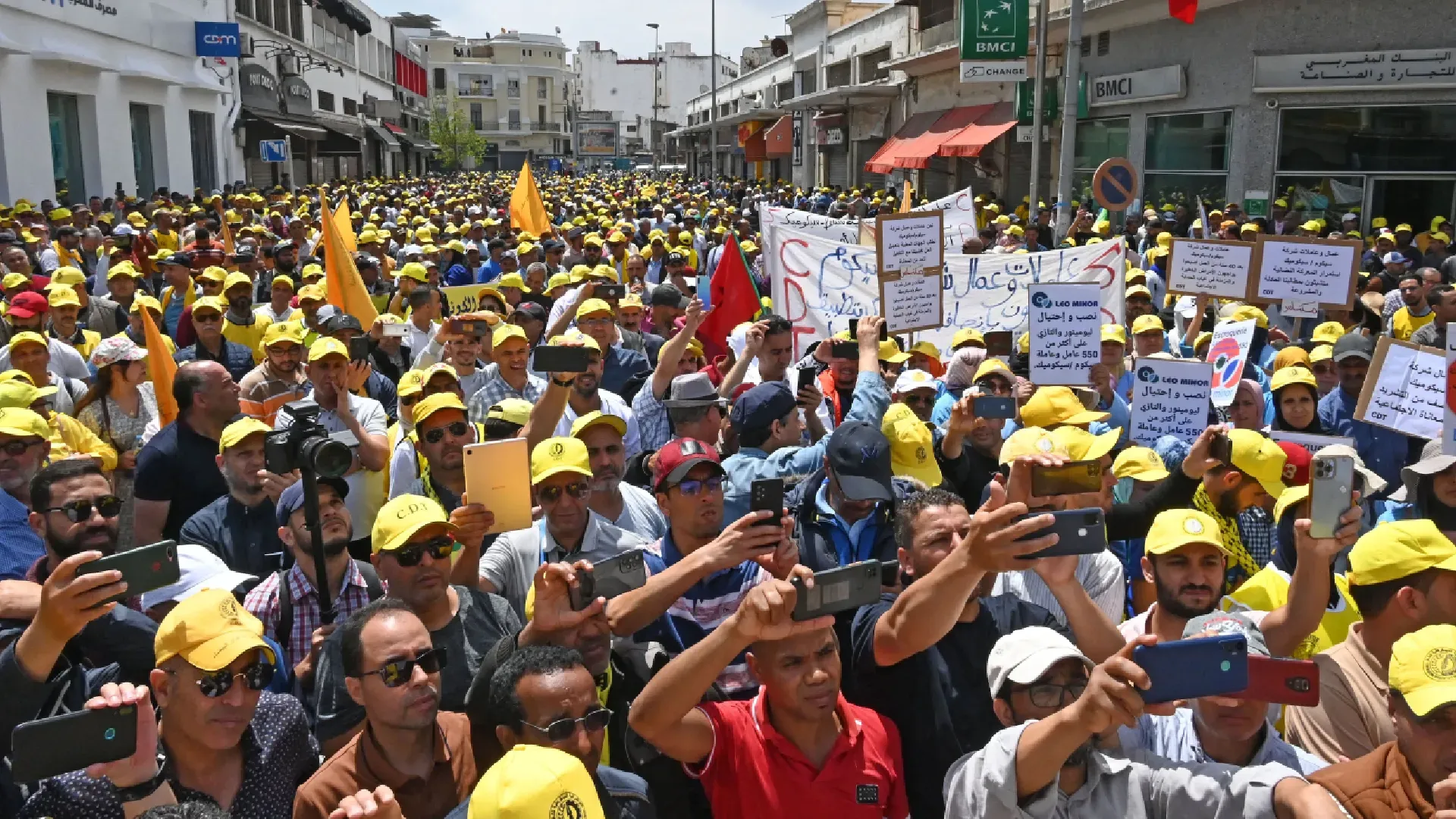Union-led walkouts and associated protests in major Moroccan cities are likely to recur on a weekly basis for the rest of 2023. We anticipate that these will remain peaceful and sporadic, attracting no more than several dozen people.
This assessment was issued to clients of Dragonfly’s Security Intelligence & Analysis Service (SIAS) on 16 June 2023.
- Isolated and uncoordinated strikes across various sectors are very likely for the rest of the year, at least
- Rising food prices appear to be the main reason for these
- Widespread unrest or a general strike is unlikely this year
Unions have held significantly more actions this year compared with previous years, but disruption has remained minimal. With most strikes and protests being sectoral-specific and uncoordinated due to anti-strike legislation introduced in 2011, this is unlikely to change. Those laws, updated in 2018, make it very hard for unions to orchestrate widespread mobilisation such as a general strike.
Weekly union-led walkouts to persist
Union industrial and other actions, including associated protests, are likely to recur on, at least a weekly basis for the rest of the year in cities like Casablanca, Rabat and Tangier. Local press reports and our analysis of data from our partner The Armed Conflict Location & Event Data Project (ACLED) show that there have been more strikes and protests in the first six months of this year compared to the whole of 2022. These appear to be largely in the private sector, although workers in the public sector have also arranged walkouts.

The economic conditions driving these trends – high inflation and the rising cost of living – will very likely sustain such activity until the end of the year at least. Inflation is currently at around 7% and food prices have risen by at least 16%, according to state statistics agency, HCP. However, the government has so far been able to avoid widespread hardship protests due to limited mobilisation capabilities by left-leaning political parties and the country’s main trade union, Moroccan Social Front (MSF). This is despite the latter frequently calling for countrywide protests, including on 20 June in Casablanca; only several hundred people attended.
Limited disruption from uncoordinated strike action
The disruption caused by strikes and walkouts is likely to remain limited. So far, stoppages have been uncoordinated and sectoral. The MSF has failed on two occasions this year to organise coordinated strikes across various sectors. This is largely because of legal requirements since 2018 that any strike must be declared by the General Union of Moroccan Workers (UGTM) and that a minimum services agreement must be negotiated prior to any strike action. Disruption is also limited by a law that requires 48 hours’ notice before any stoppage.
The most pertinent operational disruption related to union action will, in our analysis, be from associated protests rather than the stoppages. Although most protests have been peaceful, participants often block roads and engage in isolated scuffles with police. Based on protest activity in the last 18 months, we anticipate that these will remain largely limited to major coastal cities such as Casablanca, Rabat and Tangier. Protests are much less common in major tourist cities like Agadir and Marrakech, where there tend to be more jobs available in the upcoming tourist season.
The most disruptive stoppages this year will probably be in the transport and civil service sectors. We also forecast that there will be further strike action by air and maritime staff at ports of entry, including major airports. Air traffic controllers held a national strike earlier this year. Other sectors include agriculture and mining, and critical infrastructure workers such as those at water pumping and electricity stations. So far, private-sector mining and fertiliser companies have avoided strike action, seemingly due to higher-than-average salaries.
Clear trend of more frequent protests
We also anticipate that peaceful hardship protests in Morocco will occur on a near-monthly basis this year. This is a trend that began before the Covid-19 pandemic (see graph) and has continued probably because of the impact of global food prices from the war in Ukraine. However, not all of these include union groups, with many spontaneous small localised protests against rising food prices. Still, government subsidies on staple products and initiatives such as a new income support programme for low-income households appear to be doing enough to limit the emergence of a widespread hardship movement.
Image: Members of Morocco’s Democratic Confederation of Labour trade union attend a demonstration in Casablanca, Morocco, on 4 June 2023. Photo by AFP via Getty Images.




